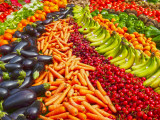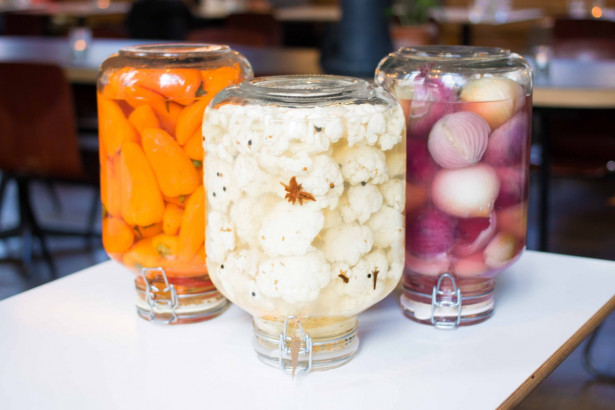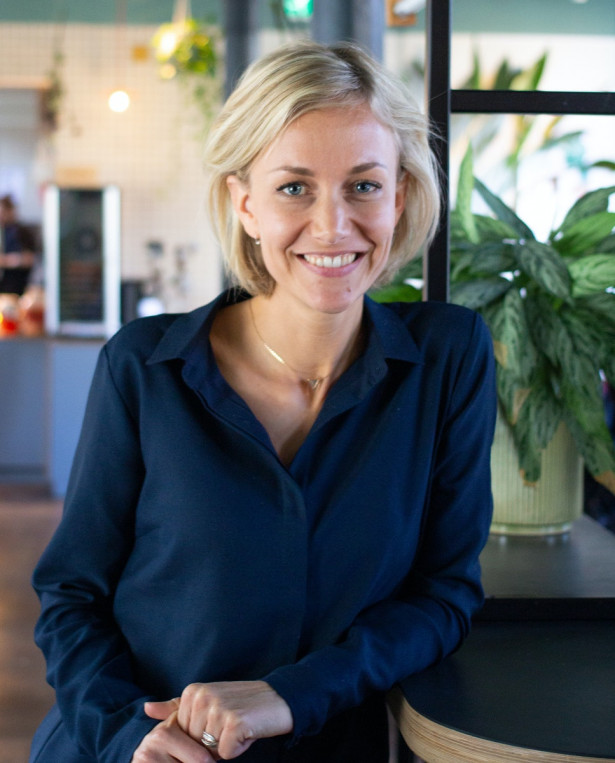Week of the Circular Economy #8: InStock

Instead of delicious food being thrown out, InStock redirects it onto a plate. In this interview, Freke van Nimwegen, founder of InStock, explains how they rescue fresh and healthy produce in the Netherlands from going to the landfill. With one-third of all the food in the world binned which was cultivated for consumption, it’s not just the food that’s wasted but the energy of farming, processing and transporting. This innovative initiative has set out to find solutions. They have their own restaurants serving rescued food, a marketplace for restaurants to buy fresh produce otherwise destined for the bin, and also offer beer and granola products made from ‘food waste’.
Here is an excerpt from this interview:
What can you tell me about the problem of food waste, how do you tackle it and how much food have you saved?
One-third of all food is wasted, and that happens mostly at the beginning and the end of the food chain. Right now at InStock we’re mostly focusing on the primary industry, so the food that is either at the farmers, producers, packaging companies or the broker. There is a lot of waste already before the retailer food companies even get it so we focus on their products that would be wasted otherwise, but are still perfectly fine. We then bring it to our restaurants as well as others to make sure it’s used. We have now saved close to 900,000 kilos from going in the bin.
What is the story of the InStock restaurants?
We started the restaurants in 2014 and our press release got so much attention we were fully booked immediately. We now have restaurants in 3 locations, one of them is in the political heart in Amsterdam which is great to create awareness, as politicians come to eat there. We have found really creative chefs who create lunch and dinner with whatever comes in. They used to have to make new recipes often, but over the years we’ve been able to establish a database of recipes to handle whatever comes in. For example, if beetroots come in we have a recipe for beetroot risotto which we can make for three weeks or three days depending on the quantity. We now have more and regular suppliers with larger quantities so we have a better prediction of what we are going to get. Also our creative chefs have come up with recipes that we have made a cookbook out of.

Could you tell me more about the beer and granola products that have been made from rescued food?
Because some products are wasted more than others we tried to see what we could use them for. So together with a local Amsterdam brewery, we made Pieper Bier from rescued potatoes and Bammetjes beer from rescued bread. From this collaboration we discovered that the grain which is left over after making beer at breweries, is still a very nutritious product with a lot of fibers and protein, so we use that as the base for our InStock Granola.

What do you think are the biggest barriers to getting more initiatives to use food waste?
In general, our whole system is based on a linear economy. The business case for a circular product is hard because it takes more time and money to get products that would be wasted otherwise. So, for example, it would have been cheaper for us in the beginning to just buy it at the wholesaler then what we were doing. But right now we're just seeing that as we are scaling up, with more suppliers and higher quantities delivering to InStock, then it becomes cheaper. It’s the same for packing and plastics, a lot of people want to work with recycled plastic but if it’s so much more expensive than normal plastic then why would they? Taxes could play a big role in this because now we are taxing income, but if we taxed resources then it would become a lot more interesting for companies to work towards circular business.
Could you tell me more about the ‘zero waste hierarchy’ and what you think are the best solutions?
The summary is to reduce, reuse, recycle, in that order. For us, of course, if you can prevent products or food from becoming waste, that’s better. After this, we reuse and recycle. If the food is not edible anymore then at least keep the value as high as possible. So for example, make compost out of it or animal feed from it instead of burning it or throwing it into the landfill.
<https://www.metabolic.nl/news/ready-to-stock-up-on-food-waste/>

